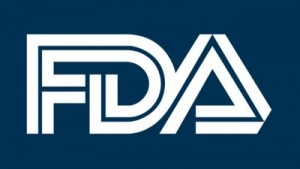The policy comes in the form of a guidance document, which lays out the FDA’s current position on the regulation of homeopathic drugs.
In the guidance, the FDA says:
- Any homeopathic drug that has not been considered “generally recognized as safe and effective” (GRAS/E) is considered a new drug;
- FDA has not determined that any homeopathic drugs are GRAS/E;
- A new drug cannot be marketed unless it goes through the FDA’s approval process;
- No homeopathic drugs have gone through FDA approval nor can any producer afford to take them through the approval process.
That’s right: in one fell swoop, the FDA has declared that virtually every single homeopathic drug on the market is being sold illegally. The guidance explains that the agency will apply a risk-based regulatory approach that will prioritize enforcement actions against:
- products with reported safety concerns;
- products that contain or claim to contain ingredients associated with potentially significant safety concerns, e.g., belladonna or strychnine;
- products for routes of administration other than oral and topical, e.g., injectable and ophthalmic products;
- products intended to be used for the prevention or treatment of serious and/or life-threatening diseases and conditions, e.g., cancer, heart disease and opioid addiction;
- products for vulnerable populations, e.g., children; and
- products that are deemed adulterated under FDC Act § 501, e.g., do not meet standards of quality, strength or purity as required under the law.
The FDA also says that it recognizes that many homeopathic drugs fall outside of these categories and does not intend to take action against such products at this time, but the writing is on the wall. If it wants to, the FDA could go after any homeopathic drug currently on the market.
Is this level of regulatory scrutiny necessary? No. Although prior to the release of FDA’s guidance document homeopathic drugs did not need to go through the New Drug Approval process, they underwent a different kind of pre-market approval. Homeopathic drugs traditionally required a monograph from the Homeopathic Pharmacopoeia of the United States (HPUS), which involves clinical verification of the efficacy of the substance.
FDA’s process started two years ago, when the agency held a public hearing to evaluate its enforcement policies for homeopathic products. We suspected the agency was planning to tighten its grip on homeopathy, which, after all, competes with the pharmaceutical drugs that fund the FDA.
We cannot let the FDA eliminate consumer access to homeopathy. Write to the FDA and tell them that previous rules were sufficient to regulate homeopathic products, and this new proposal threatens the future of homeopathy. Please send your message immediately.








